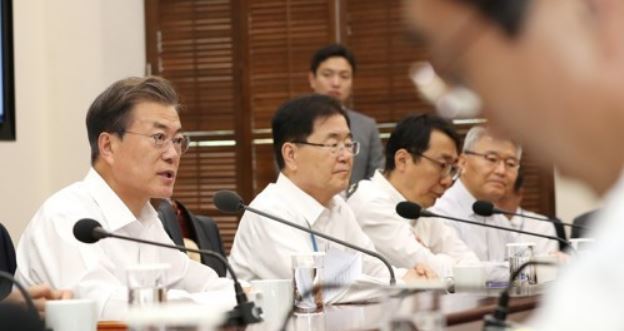52-hour workweek to cost businesses 2.3 tln won in extra expenses: KERI
By YonhapPublished : Dec. 10, 2017 - 14:48
South Korean businesses will have to spend more than 12 trillion won ($10.9 billion) annually in additional payments, and be compelled to train more employees if the government imposes a weekly 52-working hour limit, a report said Sunday.
The Moon Jae-in administration is pushing ahead with a revision to the Labor Standards Act, pending approval by the National Assembly, limiting the maximum working hours as a means to implement the chief executive's election pledge to create over 800,000 new jobs in the public sector.
The Moon government is pushing to reduce the annual working hours to below 1,800.
Data from the Organization for Economic Cooperation and Development show an average South Korean worked 2,069 hours in 2016, 306 hours more than the OECD average of 1,763 hours.

The Korea Economic Research Institute report said the 52 weekly working hours will cost businesses 12.3 trillion won every year.
The total breaks down to 175.4 billion won in extra wages to employees, 9.4 trillion won in the employment of 266,000 workers to compensate for the shortage of manpower, and 2.7 trillion won for the training of the new employees and other expenses.
The manufacturing industry will be hit the hardest by the workweek restrictions with 7.4 trillion won in additional expenses being required, with the transportation industry likely to be burdened with 1 trillion won in extra cost. (Yonhap)



![[Herald Interview] 'Amid aging population, Korea to invite more young professionals from overseas'](http://res.heraldm.com/phpwas/restmb_idxmake.php?idx=644&simg=/content/image/2024/04/24/20240424050844_0.jpg&u=20240424200058)















![[Today’s K-pop] Kep1er to disband after 2 1/2 years: report](http://res.heraldm.com/phpwas/restmb_idxmake.php?idx=642&simg=/content/image/2024/04/25/20240425050792_0.jpg&u=)